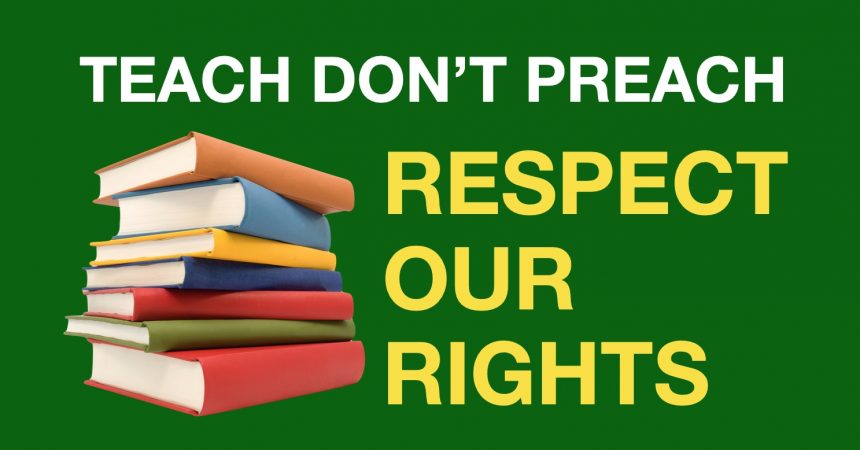
Supreme Court says schools must respect constitutional rights based on freedom of conscience
According to the Supreme Court, the reason there is a right to home school in our Constitution is because of the right to freedom of conscience. Article 42.2 guarantees the right to home school, and this right was upheld by the Supreme Court in the Burke case in 2022.
The Court found that the Department of Education, in administering Constitutional rights, had failed to take account of home schooled children when putting in place a scheme for the Leaving Certificate during covid. The Department had interfered in the rights of parents under Article 42 of the Constitution.
42.1 The State acknowledges that the primary and natural educator of the child is the Family and guarantees to respect the inalienable right and duty of parents to provide, according to their means, for the religious and moral, intellectual, physical and social education of their children.
2 Parents shall be free to provide this education in their homes or in private schools or in schools recognised or established by the State.
It is unusual to have a right to home school written into a Constitution. There is no human right to home school your child. There is a right for every child to have an education, just not at home.
If there was a will to remove this right, we would need a Constitutional referendum. Anyone proposing it be removed would need to show how our education system protects the right to freedom of conscience of all parents and their children, because according to the Supreme Court the reason this right is written into the Constitution is because of the right to freedom of conscience.
The Supreme Court said that:
The text of the Constitution appears to recognise that the general tendency in the 1930s was, and remains, that parents send their children to school while also elevating freedom of conscience so that where the views of a family diverge from whatever may become the prevailing orthodoxy of approach as reflected in State or private schools, education may take place in the home.
(Burke v Minister for Education – Supreme Court 2022)
If you have the means and the capacity to home school your child, and you object on the grounds of conscience to the ethos of your local publicly funded school, then this is your right.
But what about the rest of us? We do not have the means, experience or capacity to home school our children.
Similarly, in administering the Constitutional right to not attend religious instruction, the Department of Education claims that it can’t tell schools how to implement the right.
This year, the UN Committee on the rights of the Child has raised the issue of the freedom of conscience of minorities in publicly funded religious schools.
The Constitutional right of our children to attend a publicly funded school and not attend religious instruction is given no practical application on the ground. Our children are left sitting in the religion class, as they are not supervised outside the class or offered another subject.
Nobody is asking the Department of Education to tell schools ‘how’ to administer the right. It is not a matter of ‘how’ but ‘if’ the right is given practical application on the ground.
What we are asking is, in administering this Constitutional right, the Department of Education guarantees that children ‘not attend’ religious instruction.
Whether that means that schools supervise children outside the classroom where religious teaching takes place, or offer students another subject, is up to the school. The Constituiton does not see the right of students to not attend religious instructin/teaching in publicly funded religous schools as a challenge to the ethos of these schools.
In administering the right to not attend religious instruction, the Department of Education is failing in its Constitutional duty to respect the rights of minorities in publicly funded schools and particularly the right to freedom of conscience.
Why are minorities expected to leave their right to freedom of conscience at the school gate, while the rights of home schooled families are upheld and guaranteed by the courts? The Constitution did not leave minorities with a choice between a religious education for their children or home schooling, and the Supreme Court has never said they did.
Our Constitutional rights are a condition of the public funding of religious schools and we will continue to campaign for them. Article 44.2.4 is a sub-section of the right to freedom of conscience. The right of students to not attend religous instruction has been ignored by Church and State for long enough.
We will continue to campaign for the right of minorities in publicly funded schools.







0 Comments
No comments!
There are no comments yet, but you can be first to comment this article.